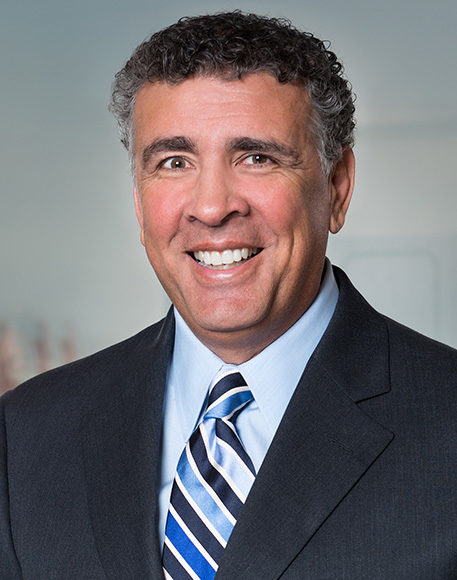Standards of Care in California Nursing Homes
 Nursing homes are skilled nursing facilities that elderly people and seniors live in when they do not need a hospital or medical assistance but cannot live on their own or receive the care that they need from family members. Most nursing homes provide services and care to residents 24 hours a day, meaning that nursing aides, nurses, and other staff members are on duty and available at all times of day and night.
Nursing homes are skilled nursing facilities that elderly people and seniors live in when they do not need a hospital or medical assistance but cannot live on their own or receive the care that they need from family members. Most nursing homes provide services and care to residents 24 hours a day, meaning that nursing aides, nurses, and other staff members are on duty and available at all times of day and night.
The goal is for the nursing homes to meet the individual and unique needs of the residents, which may include occupational therapy, physical therapy, speech therapy, and more. Some residents will have serious medical conditions, such as Alzheimer’s disease, Parkinson’s disease, respiratory disease, and cardiovascular disease, while other residents do not have any conditions at all.
What is a skilled nursing facility?
In the state of California, nursing homes are considered to be a type of skilled nursing facility. Skilled nursing facilities are defined as “a health facility or a distinct part of a hospital which provides continuous skilled nursing care and supportive care to patients whose primary need is for availability of skilled nursing care on an extended basis.”
Who regulates and oversees nursing homes in California?
The California Department of Public Health is responsible for regulating, overseeing, and licensing nursing homes in California. This means that the state employees who work for the California Department of Public Health and the Licensing and Certification Program must inspect nursing homes on a regular basis and look into any complaints made by residents, family members, or even the nursing home staff.
They also return to the nursing home facilities to make sure that issues have been properly addressed. The results of inspections are published by the California Department of Public Health to ensure that residents, their families, and the community are aware of and up to date on anything occurring at the nursing homes.
Standards of care in California nursing homes
There are certain standards of care that California nursing homes must abide by. Below, we will go over a few of the most important standards of care requirements that the nursing home facilities in California must meet and follow.
Types of licensing and certifications required
In California, all nursing home facilities must be licensed. If they meet the federal rules and guidelines, they may also receive their license to take Medi-Cal and Medicare residents. Nursing homes that choose to also provide hospice care will likely need to apply for other licenses and certifications, depending on the hospice providers’ required guidelines.
While these are the basic licensing and certification requirements, it is important to know that nursing home facilities can receive additional licensing based on the various types of services they provide to residents.
Rules for administering medications
Since nursing homes house elderly individuals who need care and assistance around the clock, they are required to administer medications to the residents. The registered nurses at these facilities are in charge of ensuring that the proper dosage of medicines is provided at the correct times to residents. In fact, Cal. Code Regs. tit. 22 § 72313 states the following:
- Only a person who is legally authorized to administer medications can provide medications to residents.
- All medications and treatments should be given as prescribed.
- If medications require tests and vital signs, these tests and vital signs should be completed and recorded.
- Preparing medication doses for more than one scheduled medication time is not allowed.
- Only licensed nursing or medical personnel can administer medications and treatments. However, in some cases, medical or nursing students can provide medications and treatments to the residents as long as it is part of their coursework or studies. In addition, while being supervised, staff members who are unlicensed can provide certain care or treatment to the residents, such as giving medicinal baths, laxatives, and applying lotions to the skin.
HIPAA guidelines
Since nursing homes are part of the healthcare and medical industry, they must follow the Healthcare Insurance Portability and Accountability Act (HIPAA). When following HIPAA guidelines, the residents’ identities remain completely confidential, which safeguards their health information and protects them from potential healthcare abuse and fraud. All RNs, LPNs, CNAs, and other staff members must be educated, trained, and knowledgeable of the HIPAA contract or agreement that the nursing home they are employed at follows.
If the HIPAA agreement is violated, this can impact the future of the nurses, staff members, residents, and the entire facility. Therefore, it is always recommended to be extremely cautious when working in nursing homes as you want to be careful about what you say or tell people that could be considered a HIPAA violation.
Staffing requirements
According to Cal. Code Regs. Tit. 22 § 72329.2, California nursing homes must give each resident at least 3.5 hours of hands-on care each day, and at least 2.4 of those hours must be direct care from a CNA. The staff members of a nursing home are typically made up of doctors, registered nurses, licensed nurses, and nursing assistants. However, other than the 3.5 hours of hands-on care, the state of California is very lax on their staffing requirements in nursing homes.
The rights of California nursing home residents
When a person becomes a resident of a California nursing home, they have several rights that must be respected. For example, they have the right to have visitors, communicate with their family and friends outside the facility, have a sense of privacy and confidentiality, participate in activities and groups, be free from abuse, and more. If a nursing home fails to respect and protect the rights of a resident, legal consequences will likely arise.
If you believe that your family member or loved one isn’t getting the standard level of care that they deserve in a nursing home, the Long Beach nursing home abuse attorneys at Garcia & Coman can legally advise you on what to do. Our team knows and understands the laws surrounding these types of issues. Therefore, if you choose to work with us, you can rest assured knowing that we are experienced, skilled, and knowledgeable and will never steer you wrong regarding the legal process. Call our office or submit our contact form to schedule your first appointment with one of our lawyers today. We conveniently serve clients in Los Angeles, Long Beach, New Orleans, Louisville, and Phoenix.

Stephen M. Garcia represents victims of elder and nursing home abuse and is known as one of the leading civil litigators in the country. He is Senior Partner at Garcia & Coman, where the firm’s practice is focused on elder abuse, nursing home abuse, and wrongful death of the elderly.
Find out more about Stephen M. Garcia

